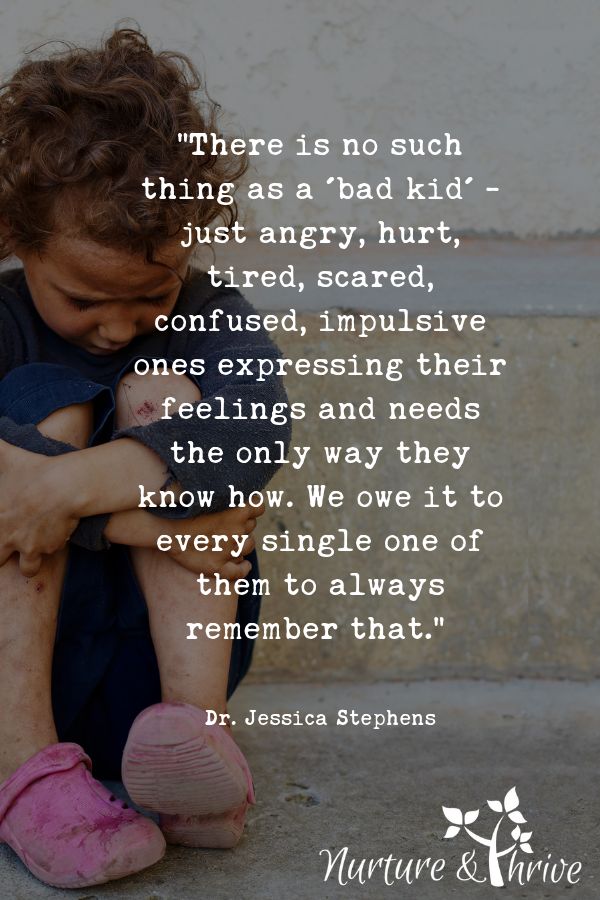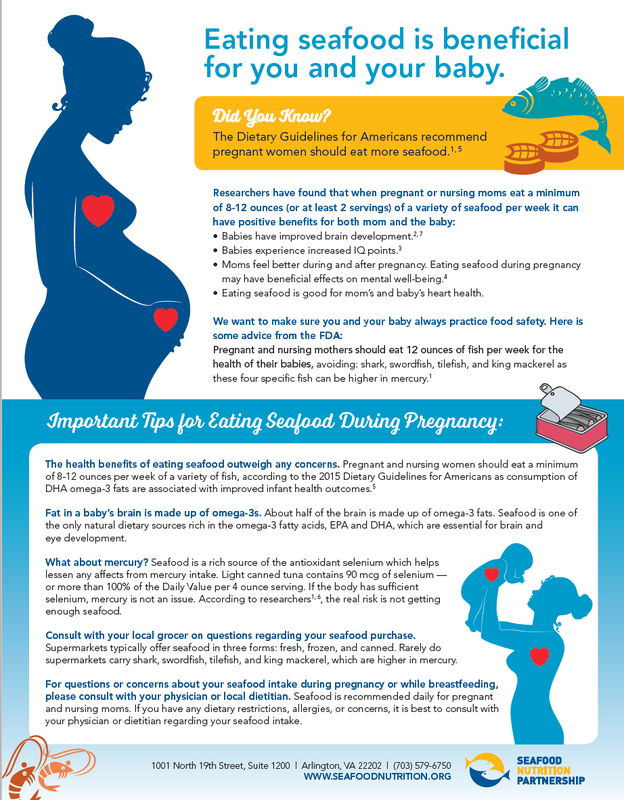How to handle angry parents in child care
How to Communicate with Difficult Parents in Child Care
Being an effective child care provider means establishing a relationship with their child and the child's parents. Sometimes, it can be tougher to figure out how to communicate with parents than communicating with their children. That’s why strategies that establish best practices regarding communication with, sometimes difficult, parents are essential.
Some parents place their full trust in your program's ability to provide proper child care, respect your opinion and your expertise. Others aren't as cooperative, though they may have their children's best interests in mind. These parents may question your observations, programs and decisions. Often, these parents end up requiring a lot of time and communication. Unfortunately, not all of that communication will be effective and productive.
Challenging conversations inevitably crop up. Arming yourself with ways to steer heated conversations and complaints back to a productive dialogue only stands to strengthen your skills as a child care provider. This is a skill that you can pass on to your staff to ensure they are equipped to deal with the challenges of communicating with parents.
Here are some essential tips on how to effectively communicate with parents and make the most of every conversation.
Address your Feelings
When confronted with a difficult parent, it can be tough to take in what they are saying if you’re not aware of how you are feeling. As a result, your response may be less than ideal and hinders the strong, positive relationship you are trying to forge.
If you check-in with yourself throughout the workday, you are less likely to meet a parent’s concern with a stress-laden response. When you are in tune with your internal dialogue, you can apply useful ways to communicate with parents at daycare without falling prey to your stress or frustration.
Listen and Avoid the Defensive Approach
With a level-headed approach, you can actively take in what a parent is truly saying. Even if you disagree, try not to jump on the defense when met with a concern or criticism. A parent wants to be heard.
A parent wants to be heard.
Do not interrupt them until they’ve said their piece, and try to understand where they are coming from. No matter the circumstances, there’s one thing you both have in common: caring for the child. With this common ground, you may be able to continue a challenging conversation more productively.
Use “I” Statements
Sometimes people can forget that even child care providers are human beings, not simply robotic professionals. Using “I” statements in a difficult conversation with a parent helps ground the issue and helps you both find a compromise. In practice, this looks like choosing:
“I feel as if this conversation isn’t productive.”
Rather than,
“You are making this conversation unproductive.”
A simple change in language can make a big difference and prevent the parent from turning defensive.
Emphasize that You’re on the Same Team
Along with “I” statements, consider a statement such as, I know that we both care about Lisa and that we are concerned about how she handles anger. What I try to do is calm her down in the following ways. What do you think of that?
What I try to do is calm her down in the following ways. What do you think of that?
A statement like that can take two opponents and remind them of their common goal. You’re on the same team, even if one team member forgets that fact.
Ask Questions
Like the statement above, ending an observation with a question puts the ball back into their court. Asking a question further indicates that you care about their opinions and thoughts. It also makes it clear that you need their contribution to solve the problem. That makes a parent feel needed and involved, which underscores the notion of being on the same team.
Empathize
Parents have a heavy emotional investment in their child, as all child care providers know. What may be harder to see is their investment in you. Even when they don't show it, most parents value your good opinion and are easily hurt when they feel they don't have it. Any "negative" comment about their child is heard as a criticism of their parenting.
Your best bet is to empathize with the parents' dilemma and express loving concern for their child. Highlight ways that you know the parent is working on issues and commend their efforts before launching into any concerns.
Be Specific
Acknowledge that this isn't easy for you. Tell the parents that you are not being critical, but that you want them to know what you see. If the parents deny what you report and state that no one else sees it, continue to focus on what you have seen. Be ready to cite specific behaviors that illustrate your concerns about the child. Then, if questions arise, you can be specific and avoid vague generalities that can be misinterpreted more easily.
Stay Focused on the Issue at Hand
In navigating how to talk to parents about their child’s development, tact is critical. No matter how gentle you are, be prepared for parents to feel some anger. Try to remain empathetic and remind them that you share with them a common concern for their child. Express your appreciation and care for their child.
Express your appreciation and care for their child.
When parents are upset, it may be difficult for them to "hear" you the first time. This can happen even when the parent has brought a problem to your attention! Stay focused on what you have seen and what you have heard.
Respect their Choice
At the end of the day, one-hundred tips for communicating concerns with parents cannot prevent an unfavorable outcome. Respect their choice. If, in spite of all your efforts, they make a contrary decision, that is their right. Down the road, they will remember you cared enough to make a difficult recommendation.
Find Reciprocity
Even though parents deny it, usually they have heard about any serious problem again and again from a variety of sources. You may even notice that one parent seems more receptive and aware than the other.
It can be helpful to have that parent restate the observed behaviors in his or her own words so that the other parent realizes that you are not being critical of them or their child.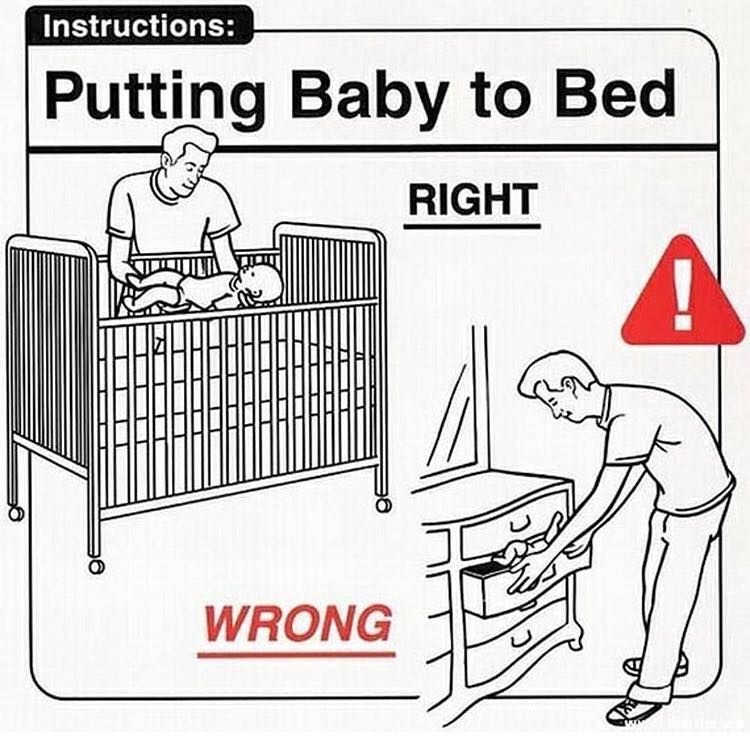 You are sincerely interested in helping. The more you can highlight how much you value their child and the parents' efforts to do the best for their child, the more likely your point will be heard.
You are sincerely interested in helping. The more you can highlight how much you value their child and the parents' efforts to do the best for their child, the more likely your point will be heard.
Compromise
First, ask the parent if they have ideas on how to move forward. Is there a consensus between you two on an aspect of the issue? Are there things both of you could improve upon? Seeking compromise with a parent is easier when you ask them to find it first. Compromise is often the best route in these cases. The results generally favor the child, which is the most important thing.
Follow-up After a Difficult Conversation
Reach out to the parent in a timely manner following the conversation or incident. Following up shows you care and have not put the matter to rest. It emphasizes your commitment to their child and to the parent, leaves room for improving the relationship and creates a clear channel of communication.
Final Thoughts
Communication isn’t always easy, as child care providers know. However, it’s an essential skill that makes managing a child care program easier. Whether you’re communicating with staff, students or families, following the tips provided can help you avoid unproductive conversations that are reduced to arguments.
However, it’s an essential skill that makes managing a child care program easier. Whether you’re communicating with staff, students or families, following the tips provided can help you avoid unproductive conversations that are reduced to arguments.
More importantly, it allows you to actively find solutions to problems through a compromise that promotes the welfare and safety of the children in your care. That’s the bottom line.
Discover the Secrets to Simpler Child Care Program Management!
Download our free eBook with expert tips that will not only help you improve your child care program, but show you how to simplify its management, so you and your team can enjoy a much needed breather.
Tips for Handling Angry Parents at Your Child Care Facility
An angry parent can appear in front of you with no warning. Regardless of what else you may be handling at the moment, you must deal with this frustrating and nerve-racking situation, because your angry parent demands immediate answers.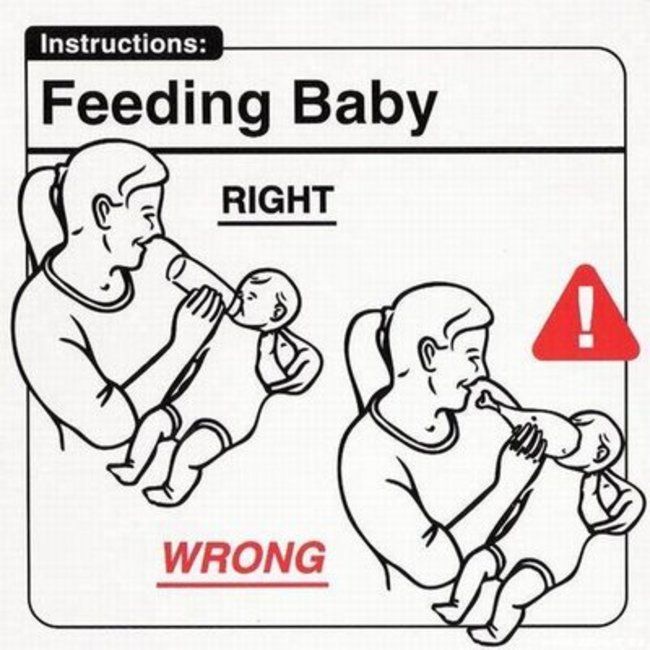
Things to remember:
- It doesn’t matter how off base you might think they are.
- It’s irrelevant if you think their behavior is rude and unprofessional.
- It doesn’t matter how poorly your own day is going.
You are the one with the power to remain cool, calm and collected so you can address their concerns with class and professionalism while turning their anger into enthusiastic support for you and your center.
Parents are passionate about their children, and sometimes this passion fuels anger. Parents want to know all the details. And the only details they may have are those delivered to them by a distracted child. Put yourself in the parent’s shoes. How would you feel – and want to be treated – if the discussion was about your child?
There are many things which a parent can be angry about. However, regardless of whatever has aggravated them, your response must be consistent.
You can handle angry parents by following these suggestions:
1. Listen and agree
Listen and agree
Allow them the opportunity to vent without interruption. If you jump in during their explanation, it will simply make them angrier. Sometimes just getting it off their chest will calm them. After they’ve vented, take the opportunity to let them know that you agree that there is an issue to resolve. You are not agreeing that they are right. You’re simply agreeing that there is an issue to resolve.
2. Categorize
By categorizing the issue, you can often resolve the issue quickly by sending the parent to the specific person who can answer their question or by providing the parent with complete information.
- If the complaint is related to teaching methods, curriculum, school policies (and other areas that are out of your control), then refer them to the principal, director or other leadership without further comment.
- If the complaint is about your classroom management plan or classroom procedures, then a polite explanation of why you do things the way you do should suffice.
 Without being defensive, educate them on how your program works to protect every student’s right to learn and enjoy school.
Without being defensive, educate them on how your program works to protect every student’s right to learn and enjoy school.
Be open, inviting, and personable, and they’ll hopefully walk away impressed with you and the way in which you run your classroom.
- If the complaint falls outside of the first two categories, then it is probably related to a behavior issue or incident. In this case, it’s ideal to follow the steps listed below in order to resolve the situation in the best manner possible.
3. Empathize
It goes a long way with an angry parent for you to validate the parent’s feelings. Tell them you understand why they’re upset and why they feel the way they do. Don’t be dismissive as if the issue isn’t very important, because this will only fuel their anger. You want them to understand that their issue is a real concern to you.
4. Take responsibility and apologize
It doesn’t matter whether you are or are not directly responsible for the issue. Taking responsibility is the fastest way to diffuse anger and this works out best for both of you. Let them know that you’re taking responsibility and that you’re going to take care of it. Part of taking responsibility should also be to apologize. Even if you don’t see things their way, you can be sorry that they are upset or sorry that this happened. Sometimes this is what they want to hear. This is a very important way to show them that you aren’t on the defensive but that you want to work with them to resolve whatever has angered them.
Taking responsibility is the fastest way to diffuse anger and this works out best for both of you. Let them know that you’re taking responsibility and that you’re going to take care of it. Part of taking responsibility should also be to apologize. Even if you don’t see things their way, you can be sorry that they are upset or sorry that this happened. Sometimes this is what they want to hear. This is a very important way to show them that you aren’t on the defensive but that you want to work with them to resolve whatever has angered them.
5. Let them know you’re going to fix it
Your final statement should be a clear statement of how you’re going to resolve the issue. Be specific. As soon as it is possible, fix the problem.
6. Follow up
Let the parent know as soon as you have addressed the issue. There is no reason to apologize again and rehash the problem. It’s over. Move on. Thank the parent for coming to you, and ask them to contact you if they have any other concerns. This is a very important step in handling angry parents.
This is a very important step in handling angry parents.
Valuable Tips for Handling Confrontation
Along with the steps we’ve shared above, consider these tips for making sure you’re prepared for facing confrontation.
- Document the issues that you have with any child’s behavior and the conversations that take place about them.
- Don’t write up problems or talk to parents when you’re mad.
- Talk to other teachers who work with children with behavior issues. There may be success in other areas that you can share with parents so that they feel less defensive when unacceptable behavior is discussed.
- Know what you want the outcome of your confrontations with parents to be. If you’re in control of your emotions and the situation, you can also get the results that you want.
Here are some more tips to remember in the midst of parental confrontation.
- Do not be defensive – even if parents are.
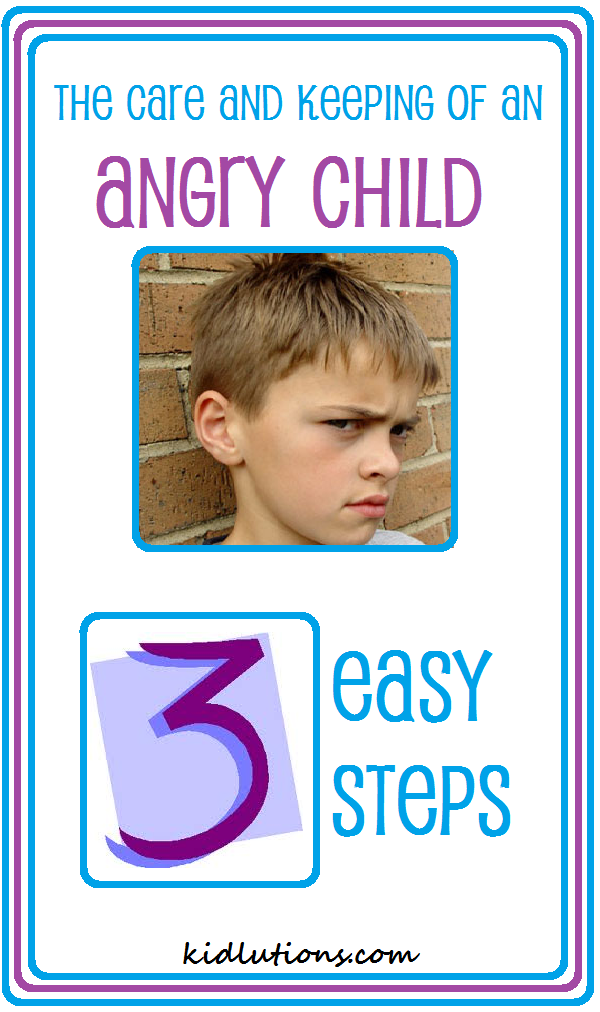 Use positivity to diffuse their anger.
Use positivity to diffuse their anger. - Let the parents vent first. Take responsibility and empathize before you propose your solutions.
- Use ‘active’ listening. By reiterating their concern and asking if you’ve understood it correctly, you let the parent know that you’re engaged in the conversation. You’re not just waiting for them to finish talking.
- Use behavioral, nonjudgmental terms when describing the problem.
- Don’t bring the student in until you and the parents have reached a resolution. It won’t do any good to include the student if the parents are still upset.
- Agree on specific steps that you and the parents will take.
- Tell the parent when you’re going to get back to them.
Here are some tips for after your confrontation:
- Agree to meet or to talk again and agree on a pretty quick timeframe for this. When half the semester is gone, it’s too late.
- Follow up with a progress report even if you’ve not been able to get the information or set actions in motion by the date that you set.

Anger and anger management for parents
Anger and parents: what you need to know?
Anger is a natural human emotion and it is perfectly normal for parents to experience it. All parents get angry at some point.
It might even be useful . Sometimes strong emotions can give you the strength to do something or stand up for a belief. Also, a situation where you experience feelings of anger and deal with this emotion in a positive and constructive way can serve as a good model for your children. For example, when you take a few deep breaths or walk away instead of calming down, instead of breaking out, you are showing your kids how to behave. nine0005
But anger can also be expressed in negative manifestations , especially if outbursts of irritation or rage occur frequently or get out of control. If you lose your temper when you get angry, it can exacerbate problems and lead to conflict with others. When you don't give yourself time to calm down, you may say or do things that are unpleasant and impossible to take back.
When you don't give yourself time to calm down, you may say or do things that are unpleasant and impossible to take back.
Children are very frightened when there are many conflict situations and shouting around them. nine0005
If you find it difficult to control yourself when you are angry, it may be worth talking to a specialist.
Why parents sometimes get angry
You, as a parent, most likely have to deal with many things at the same time - work, family, home, children, maybe even social. When you're busy and tired, it's easy to lose patience and get angry when the kids don't listen or things go wrong.
Sometimes you can be anger or annoy your partner , if you have one, when you do not agree on matters of raising children, discipline and distribution of housework. Such disagreements can even lead to conflict, especially if you do not feel respect and support.
Sometimes the fact that your child is angry or upset can cause you to have a fit of anger. For example, if your baby is angry, responds rudely to you, or does not do what you ask him to do, you may also feel very irritated. It may happen that at this moment you will break loose on the child and then regret it. nine0005
For example, if your baby is angry, responds rudely to you, or does not do what you ask him to do, you may also feel very irritated. It may happen that at this moment you will break loose on the child and then regret it. nine0005
There are other factors that can make you angry, such as illness, stress at work, financial difficulties, lack of sleep, and lack of time for yourself. Sometimes you may feel like you are being pushed to the limit.
For some people, the need to care for and raise children can cause unresolved emotional problems from their own childhood . If you experienced trauma, abuse, or neglect as a child, chances are that your emotional reactions will be overly strong in some situations, or that you may have trouble controlling yourself when you get angry. nine0005
Newborns and infants have very weak neck muscles to support their relatively large, heavy head. Sudden movements - when the baby is shaken by the shoulders, pushed, hit or thrown - can lead to death, disability or serious injury.
Recognizing the signs of anger
It may seem like you are just suddenly exploding with anger, but in fact there are physical signs that you are feeling angry. When you learn to recognize these signs, you can take steps to keep your anger out of control. nine0005
Early signs of anger include:
- rapid heartbeat;
- grumbling in the abdomen;
- agitation, that is, a feeling of tension or irritation;
- shortness of breath;
- tension in the shoulders;
- jaw and arm tension;
- sweating.
Negative thinking
Negative thoughts are very common when you are angry and can make your anger worse. For example, you had a hard day at work and were stressed. When you pick up your kids from school, they start arguing in the back seat, which makes you feel frustrated and stressed. Upon arrival home, they refuse to disassemble backpacks and put things away - you feel not only angry, but also disappointed.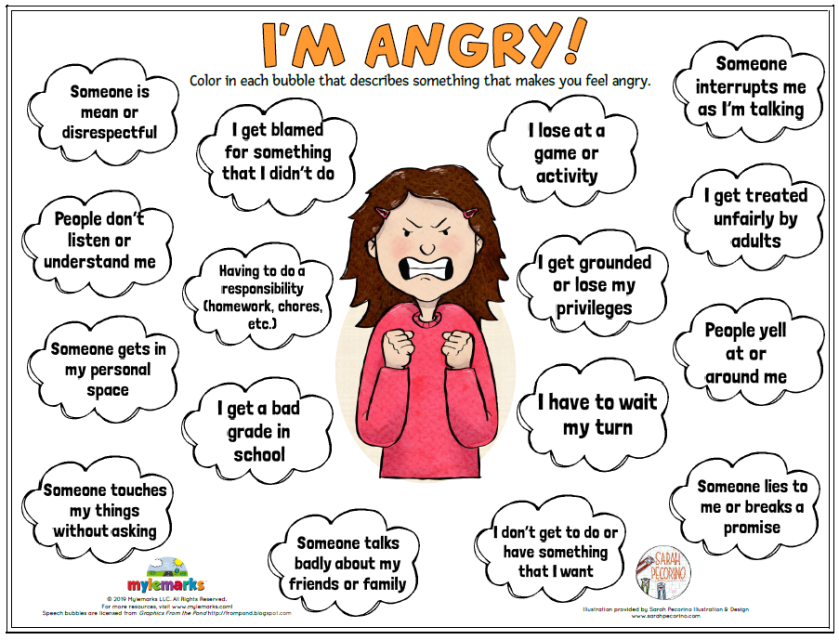 nine0005
nine0005
Here are some negative thoughts you might have in this situation:
- "No one ever helps me - I have to do everything myself."
- "You kids are so naughty."
- "If you'd behaved better, I wouldn't feel so angry."
- "Why do you want to upset me?"
If you notice these thoughts, it's a sign that you need to stop and do something to calm yourself before you lose your temper and explode with anger. nine0005
Simple ways to control your emotions
Step 1: Admit your emotions.
The first step to managing anger is to notice its first signs. It is very important to understand that you are angry and talk about it, even to yourself. For example: "This makes me angry" or "I feel like I'm starting to get angry."
Step 2: Try to calm down
Once you notice the first signs of anger, there are a few things you can do to start calming down. Here are some ideas:
- Inhale deeply and exhale.
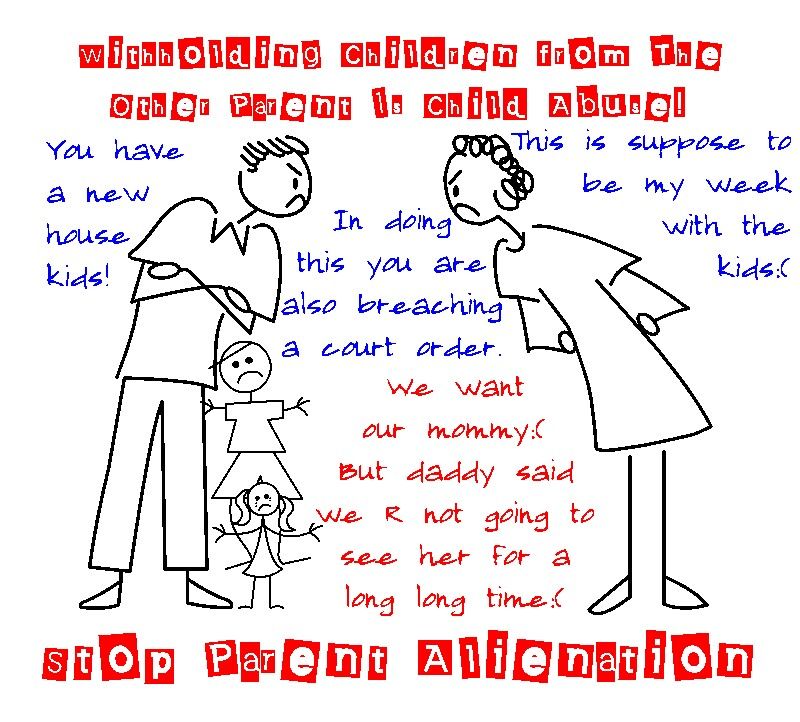 Try to slow down your breathing.
Try to slow down your breathing. - Do something that calms you, such as listening to music, flipping through a magazine, or simply looking out the window.
- Go for a run or walk.
- Take a warm shower.
- Go somewhere quiet for a few minutes.
Signs that you are calming down are slowing of the pulse and relaxation of the muscles.
Step 3: Think about the situation
If you feel calm, it might be worth thinking about the situation and analyzing what just happened. This will help you learn from what happened and better deal with similar situations in the future. Ask yourself:
- “How important is this? Why does this upset me so much?"
- "How can I resolve this situation?"
- "Do I need to do something about it, or can I just leave it as it is?" nine0056
It's a great idea to tell your children or partner how you feel and what you are doing about it. This will show them how to better deal with their emotions. For example: “I'm angry. I need to go out for a minute to calm down before we talk about it."
For example: “I'm angry. I need to go out for a minute to calm down before we talk about it."
Step 4: Set a good example for your children
It's good to apologize for getting angry, it helps children understand that this behavior should be avoided. It's okay to be angry, just don't yell. nine0005
So better apologize for yelling or losing your temper . This will show your children that it is okay to be angry sometimes. It is important to find healthy ways to deal with anger.
What do you do if you don't handle anger well?
There will always be times when you don't handle anger well, yell or say things you later regret. This is fine.
In this case, it would be a good idea to think about what to say to your children or partner under such circumstances. Here are some ideas:
- “I'm sorry I lost my temper. Next time, I'll leave for a couple of minutes to calm down."
- “I'm sorry I yelled.
 Can we talk about what just happened?"
Can we talk about what just happened?" - "I'm sorry. I shouldn't have said that even though I was angry. We should have calmed down before we talked about it."
Negative emotions accumulate when you are tired and stressed. Taking care of yourself will help you feel calmer and better at problem-solving with your children, as well as with your partner, family, and friends. nine0005
Communicating with your child
Getting impatient with your child? Here are 8 steps to help you
keep things under control
Have you ever had a row in your home? Do you know what they consist of: screaming, yelling, swearing, and a complete loss of control until you feel like you can't take it anymore and just want to... press "pause"? Yes, I'm talking about our parenting "breakdowns" that we all have from time to time when we're raising our children. Below you will find tips to help you keep your composure. nine0005
The first thing to start with is to understand why you are losing your temper. Understanding your triggers as adults is just as important as trying to imagine what pisses off your kids to help them control themselves.
Understanding your triggers as adults is just as important as trying to imagine what pisses off your kids to help them control themselves.
Children are known for their ability to bring out the best in us parents. There are times when we find that we have become better because of them. We can behave better, be more honest, forgiving, caring, and kind. And there are times when our children bring out the worst in us. If we are exhausted, overworked, nervous to the point of impossibility, then the next moment we may find ourselves screaming and screaming, purple and angry, worse than an annoyed baby. Here's the bottom line: losing our temper is our reality, something perfectly normal, even if it upsets us if it happens. But there are ways that can help you stay calm and keep yourself in control. Follow these eight steps and very soon you will be able to see a change in your approach to the situation. nine0005
Step 1: Identify Your Triggers
The first place to start is to understand why you are losing your temper. Understanding your triggers as adults is just as important as trying to imagine what pisses off your kids to help them control themselves. As the mother of a notoriously average ADD teen who has severe impulse control problems, I know what pisses me off about his bad behavior. When he talks to me rudely, or snaps, it's important for me to step back and focus on how I feel at the moment: my neck tightens, my cheeks start to burn, and being flammable, I can almost taste the words about to come out. from my tongue in response! By identifying my emotional triggers, as well as the associated physical sensations that occur in my body, I am better prepared to say, "Okay, I'm going in the wrong direction. Stop." Home triggers may include when your preschooler says "No!" for the hundredth time today when your student child rolls his eyes, or when your student child fails to do his homework yet again. If you're willing to recognize what pisses you off the most, then you're well on your way to keeping your temper from overflowing.
Understanding your triggers as adults is just as important as trying to imagine what pisses off your kids to help them control themselves. As the mother of a notoriously average ADD teen who has severe impulse control problems, I know what pisses me off about his bad behavior. When he talks to me rudely, or snaps, it's important for me to step back and focus on how I feel at the moment: my neck tightens, my cheeks start to burn, and being flammable, I can almost taste the words about to come out. from my tongue in response! By identifying my emotional triggers, as well as the associated physical sensations that occur in my body, I am better prepared to say, "Okay, I'm going in the wrong direction. Stop." Home triggers may include when your preschooler says "No!" for the hundredth time today when your student child rolls his eyes, or when your student child fails to do his homework yet again. If you're willing to recognize what pisses you off the most, then you're well on your way to keeping your temper from overflowing.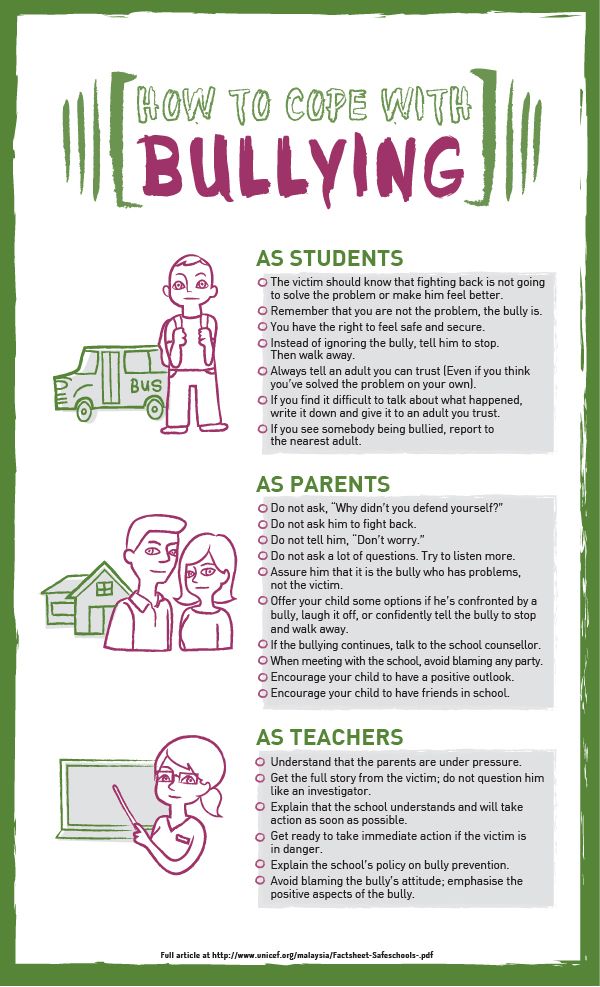 nine0005
nine0005
Neuropsychologist comment: Find an hour when no one will disturb you, turn off the phones and ask your family not to disturb you. Grab a pen and paper, sit quietly and make a list of situations that most often throw you off balance with your child. In ordinary life, we most often react unconsciously, using the most ancient brain mechanisms that allow animals to survive in dangerous situations. These mechanisms work quickly, even when the information has not yet reached our consciousness. The goal is to protect yourself through flight or attack. In the animal world, these techniques are effective and biologically justified. Man, on the other hand, has a unique ability to use the mind to manage various life situations. The first step towards a reasonable conflict resolution is to recognize what causes a strong emotional reaction in us. Aware means armed. It is also important to understand that in children, those brain systems that allow adults to act consciously, to arbitrarily regulate their behavior, are only in the process of formation, and in adolescents they are completely outperformed by more ancient regulatory systems. Only an adult in these conditions has the opportunity to stop first. nine0005
Only an adult in these conditions has the opportunity to stop first. nine0005
Step 2: Find new ways to communicate
For us, as for most parents, the most frustrating thing is to realize how we talked to our child at the moment of the breakdown. Too often, we are led by bad habits of behaving in this way, which we adopted from our parents when we were still children. Such habits include boycotts, separation from family, excessively harsh punishments that we apply to a hot head, yelling, snarky or sarcastic remarks, name-calling and name-calling. It is very easy to start following this line of behavior, especially if we have a baby screaming at us, or a teenager scolding us in the face. But it is important for us to remember that we serve as an example for our children on how to cope with anger and irritation, not only during their childhood and adolescence, but also when they become adults. This does not mean that you should not express anger, disappointment or irritation towards your child. Sometimes it is important that our children know that we are unhappy, but we must find a way to express our feelings in the right way. When we feel overwhelmed, and we are afraid to inadvertently use completely unsaving methods of transmitting our irritation to the child, finding a way to remain calm is very important. (More on this later.)
Sometimes it is important that our children know that we are unhappy, but we must find a way to express our feelings in the right way. When we feel overwhelmed, and we are afraid to inadvertently use completely unsaving methods of transmitting our irritation to the child, finding a way to remain calm is very important. (More on this later.)
Neuropsychologist Comment: Another reason why it is so important to refrain from using stereotypical aggressive and violent ways to influence a child's behavior is the impact that physical and psychological abuse has on the subsequent development of the nervous system. You can read more about this in the article “Spoil a child’s life, how?”
Step 3: Find your way to calm down
Finding a way to calm down that works for you may help keep you from losing patience. Here are some ideas:
Move away (in the truest sense of the word): When you realize you are about to snap, move away from your child. This will not only save you from wrong steps, but also serve as an example for the child of how to act in those situations when he himself feels overwhelmed. For older children, you can say, "You know, I'm not ready to talk to you about this right now, so I'm going to be alone for a bit to calm down."
For older children, you can say, "You know, I'm not ready to talk to you about this right now, so I'm going to be alone for a bit to calm down."
Neuropsychologist's comment: Intuitively, some children and adolescents themselves use this method when they want to avoid conflict. They go to their room, close the door and demand not to be disturbed. Some parents think that this is an attempt to avoid dialogue (“He does not want to discuss anything with us”), however, from the point of view of the child, this is not entirely true. One teenager told me that this is the only way he knows not to break out into screaming when he is "gotten." In general, avoiding a threatening situation is the easiest way for our brain to avoid destructive interactions, the first line of defense. An aggressive reaction occurs, as a rule, already when leaving is impossible. Give yourself the opportunity to step out of the situation to calm down. Take a time out. nine0005
Practice deep breathing: Sometimes I stop in mid-sentence, sit down and take deep breaths to calm down. It infuriates my teenagers, but it really works. Sitting straight, place both feet on the floor. Place one hand on your stomach just below your chest. Inhale slowly and deeply through your nose to the bottom of your lungs, sending the air as low as possible. Make sure you breathe from your belly and not from your chest. If you are breathing from your belly, your arm should go up. Your chest should not move almost at all, but your stomach should increase. When you have taken a full breath, remember to stop for a moment, and then exhale slowly through your nose or mouth, whichever is more comfortable for you, until you feel like you have let all the air out. Practice taking ten full belly breaths to calm down. nine0199 Neuropsychologist's comment: This method has its own physiological explanation. When we take a deep breath and, especially, exhale, breathe with the stomach, and not with the chest, we force the diaphragm to work - a large muscle that separates the heart and lungs from the abdominal cavity.
It infuriates my teenagers, but it really works. Sitting straight, place both feet on the floor. Place one hand on your stomach just below your chest. Inhale slowly and deeply through your nose to the bottom of your lungs, sending the air as low as possible. Make sure you breathe from your belly and not from your chest. If you are breathing from your belly, your arm should go up. Your chest should not move almost at all, but your stomach should increase. When you have taken a full breath, remember to stop for a moment, and then exhale slowly through your nose or mouth, whichever is more comfortable for you, until you feel like you have let all the air out. Practice taking ten full belly breaths to calm down. nine0199 Neuropsychologist's comment: This method has its own physiological explanation. When we take a deep breath and, especially, exhale, breathe with the stomach, and not with the chest, we force the diaphragm to work - a large muscle that separates the heart and lungs from the abdominal cavity. Branches of one of the main nerves of the parasympathetic nervous system, the vagus, come to this muscle. Stimulation of the vagus causes a slowing of the heart rate, vasodilation and, as a result, a feeling of sedation. True, you should not get carried away with such breathing either, since you can bring yourself to a faint, but you can take a few breaths and exhales. After that, it is important to ask yourself, “What has changed? Do I really feel better?" This way of breathing can also reduce anxiety before important events (such as before exams). nine0005
Branches of one of the main nerves of the parasympathetic nervous system, the vagus, come to this muscle. Stimulation of the vagus causes a slowing of the heart rate, vasodilation and, as a result, a feeling of sedation. True, you should not get carried away with such breathing either, since you can bring yourself to a faint, but you can take a few breaths and exhales. After that, it is important to ask yourself, “What has changed? Do I really feel better?" This way of breathing can also reduce anxiety before important events (such as before exams). nine0005
Count backwards: Before any words escape your tongue, try using a countdown until you calm down, to the point of complete withdrawal. Whether you're driving, or cooking dinner, or just trying to unwind after a hard day, there's no better way to stay calm and stop your anger from escaping uncontrollably than to start counting down from a number that is above your stress level. For some people this number may be one hundred, for others it may be ten.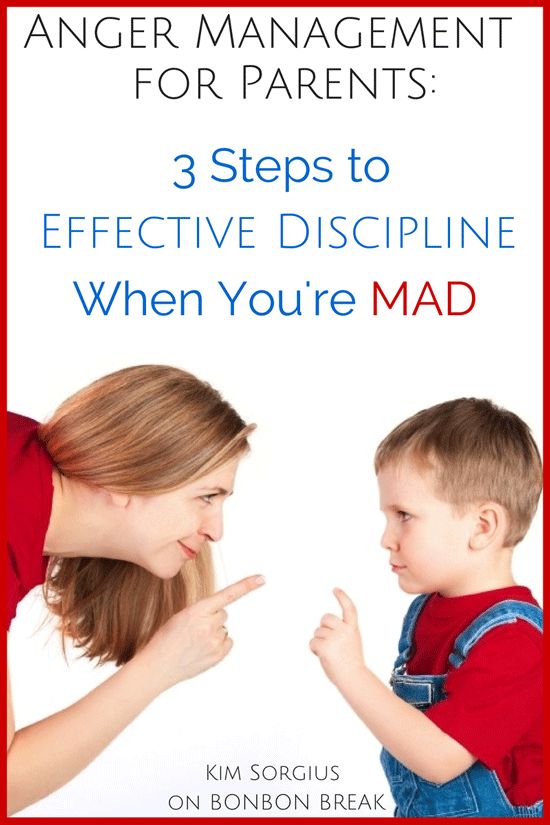 Whatever number you choose, this exercise allows you to buy time before you say or do something you will regret later. nine0199 Neuropsychologist's comment: Why is it sometimes useful to count, including during a timeout? This is a way to switch from annoying thoughts and strong feelings to an essentially emotionless, automatic and simple activity that can interrupt self-rolling. If you have gone to another room to calm down, but do not count from a hundred (or do not remember the verses that you know well, or do not pray), you may think about what happened, and this will not allow you to fully recover. The task of switching is to remove excessive emotional energy that will push you to rash words and actions. nine0005
Whatever number you choose, this exercise allows you to buy time before you say or do something you will regret later. nine0199 Neuropsychologist's comment: Why is it sometimes useful to count, including during a timeout? This is a way to switch from annoying thoughts and strong feelings to an essentially emotionless, automatic and simple activity that can interrupt self-rolling. If you have gone to another room to calm down, but do not count from a hundred (or do not remember the verses that you know well, or do not pray), you may think about what happened, and this will not allow you to fully recover. The task of switching is to remove excessive emotional energy that will push you to rash words and actions. nine0005
Long-term strategies: As a long-term calming practice, incorporate exercise into your daily routine. We are all busy, overworked, never have enough time for anything, but one of the best ways to be a good parent is to take care of yourself. You can use things like yoga, meditation, running, cycling or simple walking.
Neuropsychologist Comment: Regular (at least 3 times a week) aerobic activities such as swimming, skiing, skating, cycling, brisk walking, running have a magical effect on the nervous system. Firstly, due to physical exercises, the muscles of the heart and blood vessels are trained. This allows you to "teach" the vessels not to react so sharply to a stress situation. Now, most likely, your blood vessels narrow sharply during stressful situations, and because of this, it becomes more difficult for you to think and control yourself, as the brain finds itself in a situation of hypoxia (oxygen starvation). Secondly, during intense physical exercise, specific substances are released - endorphins, due to which your mood rises, and you feel much calmer and better. nine0005
Step 4: Communicate calmly
Communication that allows you to resolve conflict and reach acceptable agreements depends on how calm you and your child are. Don't try to have a discussion while both of you are angry at each other. Regardless of your children's age, try to keep them short and to the point.
Regardless of your children's age, try to keep them short and to the point.
"I really don't like it when I come home from work to find that you haven't done anything you were supposed to do. Please do it now." nine0005
"I don't like the way you take your brother's toys and make him cry. For that, your train is leaving for a twenty-minute break while you learn to behave better."
"You know we have an agreement: no TV until you finish your homework. You won't watch TV tonight."
When you're done, move on to other things. Don't dwell on what just happened.
Neuropsychologist's comment: In addition to the calm tone referred to in this paragraph, it is important that you and your child have pre-formulated agreements. The child must be aware in advance of what he must do (or what not to do), and be aware of the consequences that may occur if he does not fulfill his part of the contract or the request of the parents. There should not be too many rules or agreements, especially when it comes to a small child. They must be formulated in a form accessible to the child. It is good if the child himself takes part in their formulation, as well as in the discussion of the consequences that may occur. It is useful to write it all down or sketch it and hang it in a conspicuous place. Remember that the rules, promises and agreements must be observed not only by children, but also by parents. nine0005
They must be formulated in a form accessible to the child. It is good if the child himself takes part in their formulation, as well as in the discussion of the consequences that may occur. It is useful to write it all down or sketch it and hang it in a conspicuous place. Remember that the rules, promises and agreements must be observed not only by children, but also by parents. nine0005
Step 5: Choose carefully what is really worth fighting for
Too often our breakdowns come from feeling overwhelmed or irritated. It is very important not to allow a state of chronic overload, which brings us to the point that we lose our temper because of any, even insignificant, annoying act committed by a child. One way to overcome this situation is to think very carefully about what is really important to throw your strength into, and what is worth giving up on. Young children regularly do many things that can cause dissatisfaction: they are sloppy, cry at every occasion, they have tantrums, they whine. Schoolchildren can make a mess, be in a bad mood, be irresponsible and inattentive. Decide what your family values are and decide what you will take on first. Is it important for your child to do household chores, clean the room at least partially, and respect others? If so, be clear about your expectations and don't worry about the rest (including the occasional mess, eye-rolling, and moodiness or surliness). nine0005
Schoolchildren can make a mess, be in a bad mood, be irresponsible and inattentive. Decide what your family values are and decide what you will take on first. Is it important for your child to do household chores, clean the room at least partially, and respect others? If so, be clear about your expectations and don't worry about the rest (including the occasional mess, eye-rolling, and moodiness or surliness). nine0005
Neuropsychologist's comment: We often feel overwhelmed by the fact that the number of responsibilities we have taken on exceeds our capacity. Are all these duties so necessary for a normal existence? Should all these responsibilities be yours? Maybe you don't need to dust the whole house every day? Maybe leave the problem of dirty socks to those who get them dirty? A friend of mine, the mother of a 19-year-old boy, made sure that he brushed his teeth every day in the mornings and evenings. She also followed him all day and demanded that he wash his socks. It got to the point that on the eve of an important event for him, she hid all his clean socks in the hope that then he would understand how important it was to take care of his own things. Of course, she achieved nothing but a major scandal. Such overprotectiveness not only overloads the mother, but also does not contribute to the development of a sense of responsibility in the child. It is clear that psychological overload does not contribute to the improvement of relations with people close to us. However, there is also a physiological explanation for this. The brain needs rest, but rest and complete rest are not unambiguous concepts for it. There is a whole network of brain regions actively interacting during rest, relaxation or meditation, that is, when we are not busy with something extraneous, external. Interestingly, it is these areas that are actively functioning when we are trying to understand another person. There is something to think about, right? nine0005
Of course, she achieved nothing but a major scandal. Such overprotectiveness not only overloads the mother, but also does not contribute to the development of a sense of responsibility in the child. It is clear that psychological overload does not contribute to the improvement of relations with people close to us. However, there is also a physiological explanation for this. The brain needs rest, but rest and complete rest are not unambiguous concepts for it. There is a whole network of brain regions actively interacting during rest, relaxation or meditation, that is, when we are not busy with something extraneous, external. Interestingly, it is these areas that are actively functioning when we are trying to understand another person. There is something to think about, right? nine0005
Step 6: Apologize if you're wrong
One of the greatest gifts you can bring to your child is the ability to admit when you're wrong and apologize. Some parents have problems with this - they believe that admitting their mistakes will be seen as weakness and they will lose control of the situation. But let's ask ourselves, what would we like our child to be able to do when entering an adult relationship? Of course, we want our children to understand if someone was done wrong, and considered it important to ask for forgiveness for this. There is nothing more impressive than a parent admitting their fault and sincerely asking for forgiveness. An example of such humility will show the child that we are all human and that even parents make mistakes. nine0005
But let's ask ourselves, what would we like our child to be able to do when entering an adult relationship? Of course, we want our children to understand if someone was done wrong, and considered it important to ask for forgiveness for this. There is nothing more impressive than a parent admitting their fault and sincerely asking for forgiveness. An example of such humility will show the child that we are all human and that even parents make mistakes. nine0005
Step 7: Find support
Find trusted friends or family members who will support you as you raise your child. Find other like-minded parents with whom you can openly talk about times when you relapsed, about your feelings of shame or guilt. Try to maintain such relationships so that you have the opportunity to receive support (and you can repay the same) if you are on the verge. Don't be too frank with those friends and family members who have a habit of judging others, or show that they are shocked or frightened by your spur-of-the-moment judgments. These people will only make you feel bad about yourself and suck all the energy out of you. nine0005
These people will only make you feel bad about yourself and suck all the energy out of you. nine0005
Neuropsychologist's comment: Psychological parenting support groups, which are held on a regular basis, or individual work with a psychologist that can help you improve your parenting skills, may be an option for you. Unfortunately, not everyone succeeds in finding understanding in the family or among their acquaintances, and group or individual work under the guidance of a professional psychologist, first of all, provides a safe atmosphere necessary for us to be able to talk openly about our experiences. nine0005
Step 8: Be kind to yourself
And the last piece of advice: take care of yourself, be kind to yourself, and forgive yourself. Parents are tougher on themselves than any other group of people I know. It is born from a strong love and care for our children, as well as from the desire to do it always right. But there is no perfect parent who always does everything right.